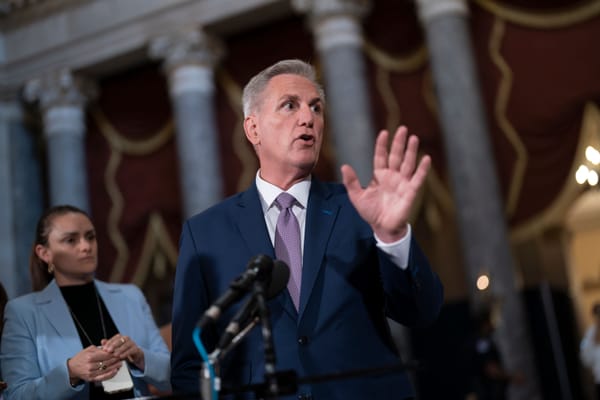Not that liberals will thank him for it, but Donald Trump seems to have made cutting entitlements a nonstarter in Republican politics. Trump attack ads against likely rival Ron DeSantis have framed as toxic the Florida governor’s past as a deficit hawk and entitlement cutter, putting pressure on the wider party to stay away from 2010s-style GOP cringe politics.
Which means that today’s congressional budget showdown is different from prior iterations: It’s less about the size of government per se than about the uses of government. Democrats have a clear vision for the country, and it is of a “green” economy. Republicans reject this vision, but they have yet to clearly articulate their own. Still, the fact that they are attacking the green subsidies, but not the standard industrial-policy components of President Biden’s Inflation Reduction Act hints at what a future vision might look like.
Back in 2011, when Republicans used the debt limit to bring the Obama White House to the negotiating table, their main demands reflected the party’s donor-driven austerity agenda. First, they sought to cut spending as an ideological end in itself—the belief that preventing the government from spending more would limit its size. The second target in 2011 was entitlements—Social Security, Medicare, and Medicaid. The result was the Budget Control Act of 2011, which, among other things, reduced Medicare benefits.
The tone and contours of today’s debt debate are different. True, Republicans are taking aim at some general governmental spending. But even the targets here seem to be carefully selected. The headline spending item under fire in this regard is the $80 billion allocated to the Internal Revenue Service to boost the number of agents being hired. Given that most taxpayers fear nothing more than an audit, it isn’t surprising that more than 60 percent of Americans oppose recruiting an additional 87,000 agents to the IRS ranks.
